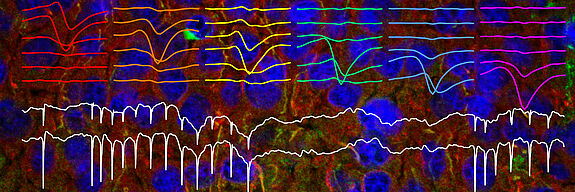Areas of investigation/research focus
One focus of Dirk Isbrandt's research is on the investigation of molecular mechanisms underlying disease-associated changes in cellular excitability using transgenic mouse models. He specifically investigates the impact of disease-associated mutations on neuronal ion channels, which cause the so-called ion channel diseases ("channelopathies"). His research involves the identification and functional characterization of mutations in ion channel genes and the generation of corresponding mouse models. Using these transgenic mice, he studies the consequences of reversible functional inactivation or chronic loss of neuronal ion channels by employing a multidimensional strategy that is designed to correlate changes in hippocampal, cortical, and basal ganglia network activities, as well as synaptic plasticity with behavioral responses and cognitive functions. In addition, his research is aimed at testing pharmacological treatments to prevent, attenuate, or normalize the observed changes in network activity and cognitive performance.
During the last years, another long-term research interest has been on the investigation of pathophysiological consequences of cerebral creatine deficiencies, a group of recently identified severe diseases affecting the synthesis and transport of creatine.


![[Translate to Englisch:] Logo SFB](/fileadmin/_processed_/2/b/csm_SFB_1089_Logo-web_47f151255a.jpg)